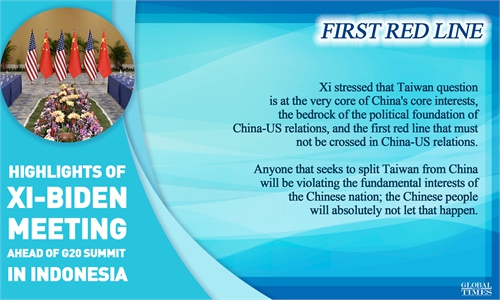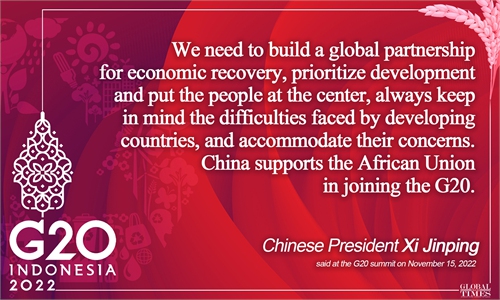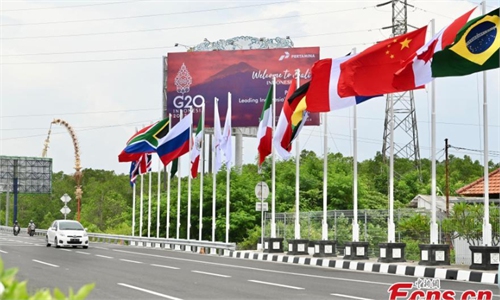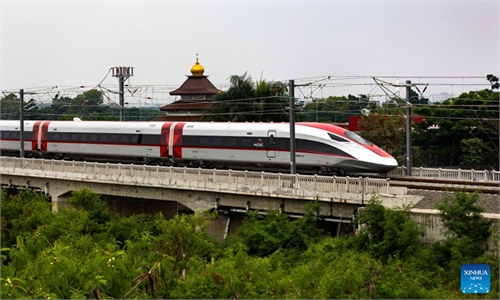Xi-Albanese meeting at G20 injects thawing potential to frayed ties
Australia still needs to show 'sincerity, diplomatic autonomy free from US'
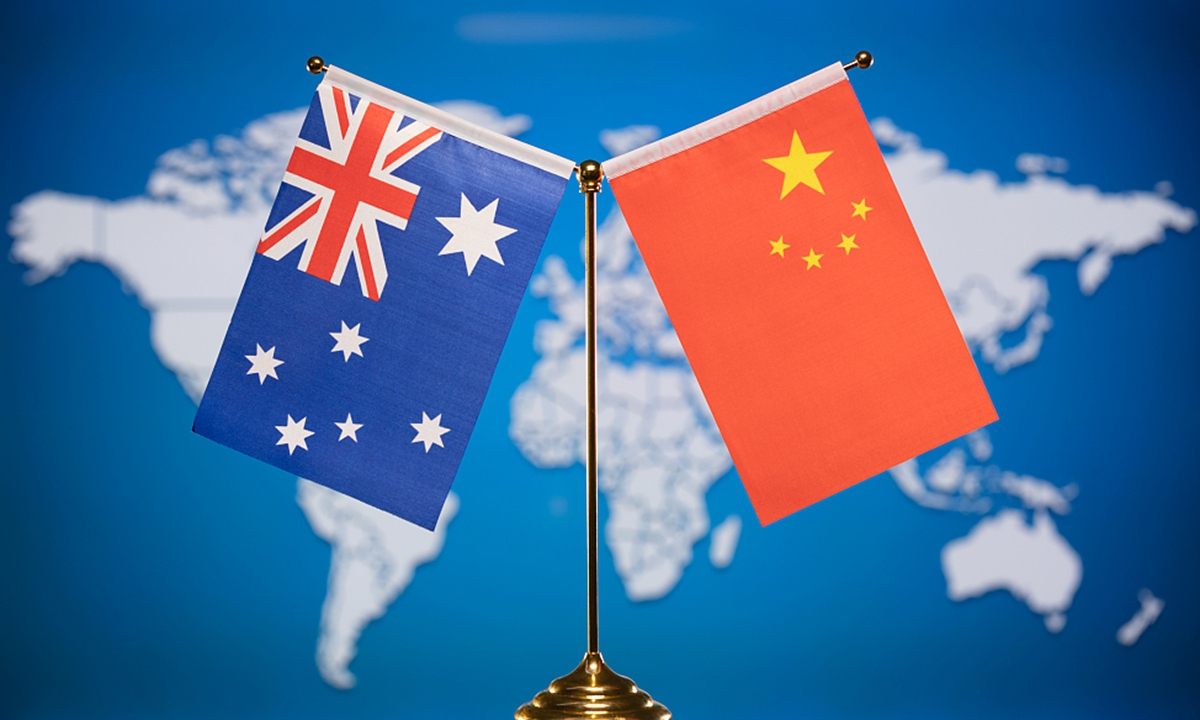
China Australia Photo: VCG
Chinese President Xi Jinping met and held formal talks with Australian Prime Minister Anthony Albanese at the G20 Summit in Bali, Indonesia on Tuesday afternoon, the first talks between leaders of the two countries since Malcolm Turnbull was Australian prime minister in 2016.
Taking place as China-Australia relations have plunged to what Australian media refers to as a "diplomatic deep freeze," the Tuesday meeting between the two leaders could be a hopeful start for a reset, but Canberra still needs to show sincerity and diplomatic autonomy rather than aligning with Washington if it really wants to pick up ties with Beijing.
Xi remarked during the meeting that China-Australia relations have long been at the forefront of the country's relations with developed countries and they deserve to be cherished by both China and Australia. China-Australia relations have encountered difficulties in the past few years, which both sides do not want to see.
China and Australia are both important countries in the Asia-Pacific region, Xi said. The two countries should improve, safeguard and advance bilateral relations, which not only serves the fundamental interests of their people but is also conducive to peace and development in the Asia-Pacific region and the world at large, Xi noted.
Xi stressed that this year marks the 50th anniversary of the establishment of China-Australia relations. To transcend differences, respect each other and benefit each other to achieve win-win results are key to the stable development of bilateral relations.
There have never been fundamental conflicts of interest between China and Australia. What do exist are the traditional friendship between the two peoples and the highly complementary economic structures as well as the shared aspiration of safeguarding the purposes and principles of the UN Charter, Xi stressed.
China values Australia's recent willingness to improve and develop bilateral relations, Xi said, adding that the two sides enjoy huge potential in economic and trade cooperation, and voicing hope that Australia will provide a sound business environment for Chinese enterprises to invest and operate in Australia, Xi said.
Albanese, on his part, remarked that Australia and China will soon celebrate the 50th anniversary of the establishment of diplomatic relations. The China-Australia comprehensive strategic partnership is in the common interests of both sides.
Australia, he said, is willing to uphold the commitment made when establishing the diplomatic relations with China, work with China in the spirit of mutual respect and equal cooperation, and reduce their differences through constructive and candid dialogue and communication, so as to promote the steady development of Australia-China relations, and carry out more cooperation on climate change, economy and trade and other important issues.
According to the Australian media outlet ABC News, the Australian leader described his discussion with President Xi as "successful," as it was "very positive and constructive."
Australia led by the current Albanese government showed readiness and willingness to correct the abnormal, self-destructive China policy under the previous Morrison government during the high-level meeting on Tuesday, said Chen Hong, president of the Chinese Association of Australian Studies.
Compared to his predecessor Scott Morrison, Albanese has acted and remarked in a mature way in dealing with China-Australia ties in stark contrast to the previous hostile stance held by Morrison, Chen told the Global Times, citing the increase in frequency of interactions between high-ranking officials of the two countries.
Australian Foreign Minister Penny Wong, in her first major policy speech, blamed the previous coalition government for the breakdown of relations with China, saying that Labor would "seek to cooperate where we can," Australia-based SBS News reported on Sunday.
Since taking office, Wong has met with Chinese Foreign Minister Wang Yi twice to reestablish a dialogue mechanism.
However, there are still uncertainties looming over China-Australia ties, despite the positive signs.
"It is too early to determine if the current Australian government would maintain such maturity, and keep being pragmatic in handling ties, as the shift in attitude would be a product of both international and domestic factors," Yu Lei, chief research fellow at the research center for Pacific island countries of Liaocheng University in East China's Shandong Province, told the Global Times on Tuesday.
Australia is likely to follow the US' lead, which is the most dominant international factor. In the next two years, China-US relations look likely to be stable, so improving ties with China could not be a result of its diplomatic autonomy. Also, Labor is facing domestic pressure caused by recession, so it needs to improve ties with its largest trade partner China, Yu said.
Time will tell if the Australian government can maintain a friendly attitude when the US might adjust policy yet again depending on the results of the 2024 elections, Yu said.

